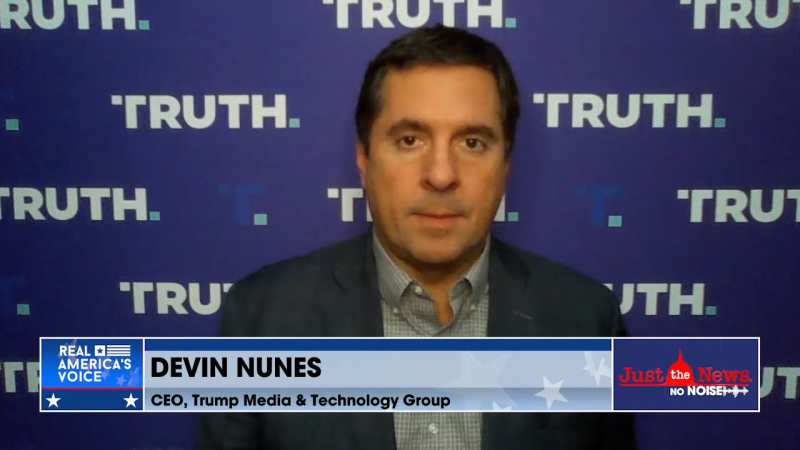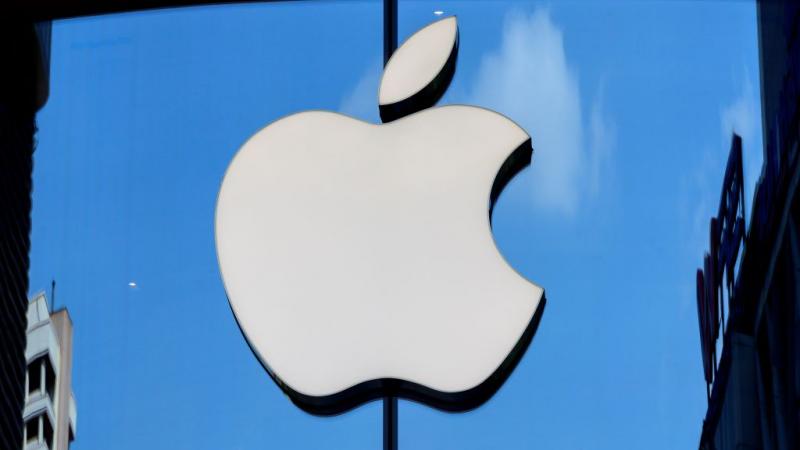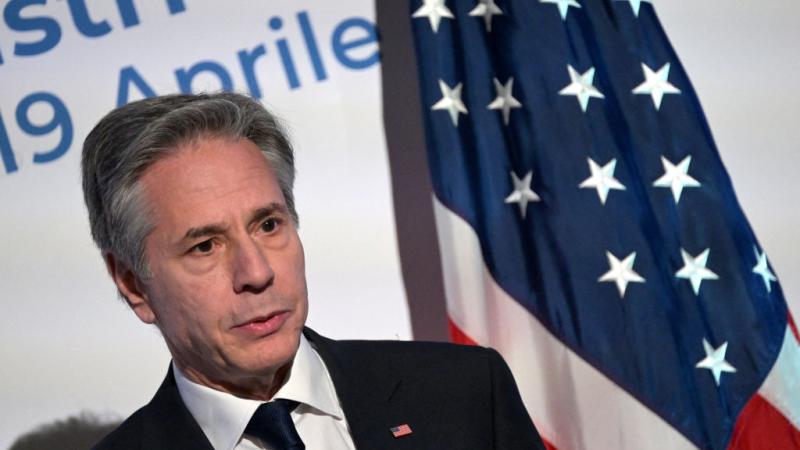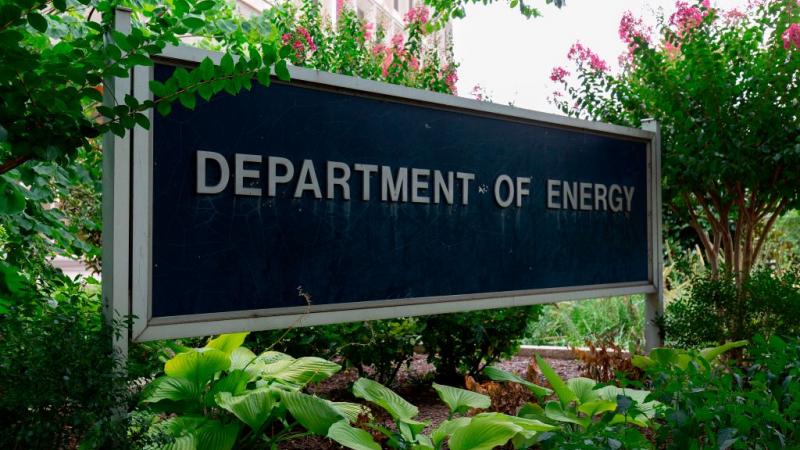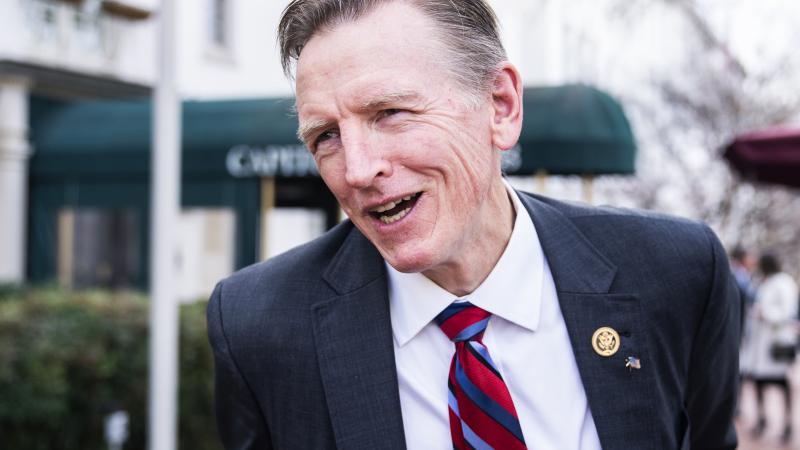DeSantis and doctors accuse media, Big Tech of hiding harm from COVID restrictions
Second roundtable follows YouTube's removal of his first COVID-19 discussion with Stanford, Harvard medical experts.
The media, academy and Big Tech are suppressing facts about the harms caused by COVID-19 lockdown policies, especially for younger generations, Gov. Ron DeSantis and public health experts said in a "roundtable discussion" on the novel coronavirus Monday.
These powerful American institutions are also misleading their audiences about the public health results from Florida's open approach, which contrasted sharply with most states, they said.
The potential Republican presidential candidate hammered Google and its YouTube platform in particular for removing his earlier COVID-19 roundtable with the same doctors, branding it "misinformation." Even some Florida news stations had their coverage removed.
"Many people really appreciated" the nearly two-hour discussion with medical experts hosted by DeSantis instead of the "clickbait headline" they're accustomed to seeing from the media, the governor said.
YouTube is hypocritical, "routinely" leaving up conspiracy theory videos about 5G networks causing COVID-19, according to DeSantis. "You can pretty much find any misinformation under the sun" on the ideologically biased video platform, DeSantis charged.
Social media in its early days helped users challenge "legacy media," yet now "some of our biggest media conglomerates" applauded YouTube for removing the roundtable, said DeSantis, adding: "They've really become cheerleaders for censorship" against unapproved narratives.
Alluding to his heavily edited interview with "60 Minutes" on COVID vaccine rollout, the governor said the media will edit contrary information "out of existence" so that "the narrative is always right."
The "Big Tech council of censors of the ruling elite" have sought to "short-circuit scientific inquiry" for a year, DeSantis said, noting that Google is even at odds with the World Health Organization on issues such as masking children.
The doctors highlighted the harm to scientific debate from censorship and attempted cancelation of health experts who express skepticism about popular COVID-19 interventions such as mask mandates and school closures. All agreed schools can safely open immediately.
Harvard Medical School epidemiologist Martin Kulldorff is a co-author of the Great Barrington Declaration, a contrarian manifesto favoring "focused protection" of those most at risk from COVID rather than broad, economically paralyzing lockdowns and other highly restrictive mitigation measures. Kulldorff offered to debate any peers specializing in infectious disease who believe children under 5 should wear masks, despite WHO guidance to the contrary.
But "junior scientists" don't want to speak out because they see COVID lockdown skeptics being treated like academic pariahs, "and they don't want to go through the same thing," Kulldorff said.
While a "fair amount of herd thinking in science" is not new, "this type of fear of speaking out and censoring is something new," according to Kulldorff, who said he couldn't get his lockdown criticisms published in the U.S. a year ago.
Stanford Medical School epidemiologist Jay Bhattacharya, who co-authored the declaration and holds a doctorate in economics, said he could put up with lockdown supporters questioning his credentials. "I've always believed that credentials don't matter in science," he said. "The key question is whether data show lockdowns have worked, and were better ideas available."
Leading public health officials have created a "massive psychologically damaged younger generation," according to Scott Atlas, former chief of neuroradiology at Stanford University School of Medicine and adviser on President Trump's coronavirus task force. Half of college-aged people are "afraid of social interaction," even higher than the high-risk elderly, Atlas claimed.
"Experts have not just failed," said Atlas, a frequent target of Stanford colleagues. "They have failed to admit that they failed."
Fauci has harmed confidence in vaccines worse than anti-vaccine activists
The governor used his roundtable to press his offensive against Big Tech, offering that he still plans to pursue legislation that would punish tech platforms for interfering in elections by, for example, deplatforming a candidate.
Asked by a reporter how this event on COVID-19 censorship was relevant to taxpayers, DeSantis retorted that Floridians care about censorship. Big Tech has "smothered and suffocated" lockdown skeptics as recently as last week's removal of his first roundtable.
DeSantis emphasized the credentials of the doctors while asking whether "scientific consensus is something we want to be governed by."
He claimed YouTube removed the previous roundtable for violating a "synthetic consensus" of medical opinion on COVID-19 mitigation measures, which have "caused large amounts of deaths" globally. Yet the platform inexplicably left up old clips of Anthony Fauci, President Biden's chief medical advisor, telling ordinary Americans they didn't need masks, and WHO recommendations to limit mask use to symptomatic individuals.
States with "draconian" COVID mandates, such as Michigan, New York and New Jersey, are now experiencing infection spikes, DeSantis said. "Shouldn't the consensus at least be based on the facts?" he challenged. He bemoaned that media attention is lacking for effective monoclonal antibody treatments against the virus.
Americans are having a "deeply enfeebled" discussion about COVID because of Big Tech and media censorship, which is "absolutely terrible for science," Bhattacharya said. "You should provide an actual argument" against him, he added, instead of faulting him for disagreeing with the Centers for Disease Control and Prevention on some mitigations.
"I'm very worried about the future of science" for the long term due to the deplatforming and minimization of scientific challenges to COVID orthodoxy, Kulldorff said.
American universities are going down the road of the former Soviet Union and China, Atlas warned, by launching "ad hominem rebukes" against scientists like himself, which in turn prevents "excellent people" from speaking and serving in government.
"I have been personally censored" for quoting WHO recommendations, Atlas said.
The roundtable emphasized how elite opinion on COVID had swung hard from initial skepticism last spring.
Pre-pandemic plans didn't recommend lockdown, which was seen as "radical" as recently as February 2020, Bhattacharya said. Somehow, "overnight" panic set in among experts, including Biden's advisors, whose reversal was not "purely evidence-based."
It's a "dangerous fallacy" that wearing face masks is a useful mitigation measure in the pandemic, Kulldorff said, pointing to the COVID surge in the winter. High-risk elderly people who should take further precautions were misled into believing that just wearing masks would protect them, while masking low-risk children inhibits their breathing and psychological development because they don't "learn to see faces" and expressions, he said.
The Harvard professor criticized Fauci for saying he still wears a mask even after getting vaccinated. "We have spent decades trying to build confidence in vaccines," yet when Fauci and others act no differently after their vaccination, "they have done more damage" than explicitly anti-vaccine activists, Kulldorff argued.
Fauci's continued gloom-and-doom is an "enormous public health messaging mistake," Bhattacharya agreed. Health experts must push back against the "undue fear" of COVID after vaccination, which combined with natural immunity will lead to "decoupling of deaths and severe outcomes" such as hospitalization.
'It's not the burden on Florida to say Florida did better'
Florida's experience shows "the experiment has been done" and lockdown is a harmful response, said Atlas, Fauci's former colleague on Trump's coronavirus task force.
The "only reasonable statistic" for epidemiologists evaluating public health measures is the effect on excess mortality, where Florida beats about two-thirds of the states, he said. "It's not the burden on Florida to say Florida did better," but on other states to demonstrate their interventions were worth the high societal cost.
His peers sometimes ignore the "total impact" in their single-minded focus on stamping out COVID, Atlas said. Their mitigations have harmed children, single-parent households, working class people and minorities the most. This, he said, is a "heinous abuse of the term 'public health.'"
Scientists quickly knew that COVID risk varies enormously by age, with a thousand-fold difference between young and old, according to Kulldorff. "The naive belief that these lockdowns would protect everybody" meant elderly people in nursing homes, multigenerational homes and the workforce did not receive "standard" protections, he argued.
Childhood vaccination rates and cancer detection plummeted while mental health problems "skyrocketed" amid lockdown, according to Kulldorf. America will live with the "collateral public health damage" for decades," he predicted, but it might not show up in the next few years. Bhattacharya highlighted the twin rise in American obesity and international food insecurity from lockdown.
Atlas pointed to research that found about a quarter of college-aged people had considered suicide just a couple months into lockdowns, while doctor visits tripled for self-harm. (DeSantis told a reporter he would "fight" to protect his mental health budget against Senate cuts.)
A new obesity epidemic emerged from lockdown, Atlas said, referring to an American Psychological Association survey that found about half of the post-millennial "Generation Z" has gained unwanted weight. Their self-reported average was 28 pounds.



